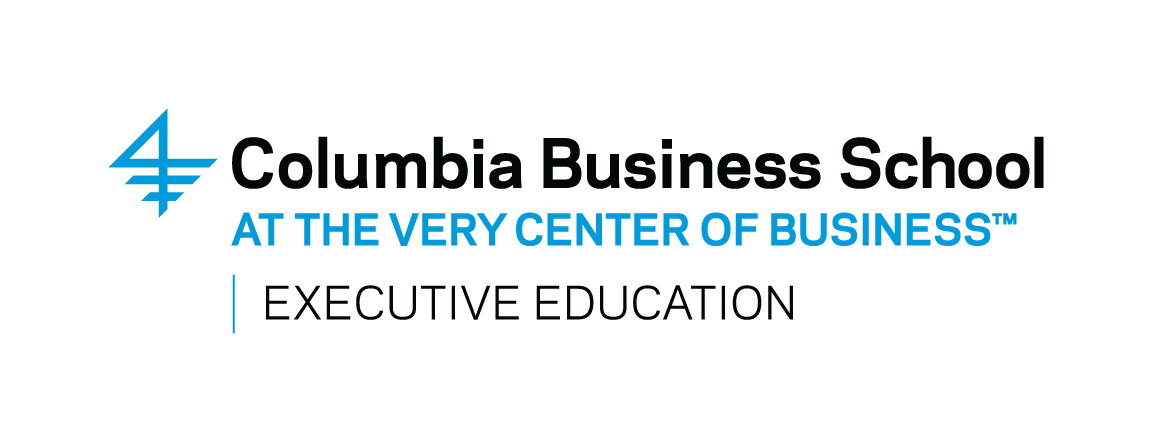- Customer Focus
Smart Products Vs a Meaningful Life
The psychology behind smart product adoption and outsourcing tasks to focus on the meaningful
According to recent figures, 40 to 90 percent of new products fail showing just how difficult it is to convince consumers to buy products that are new to the market. The reason for this high rate of failure relates to the barriers to adoption that prevent consumers from trying out new products. In many cases, those barriers are more psychological than functional: the new products may have attributes and benefits that consumers value, but they fail nevertheless because of how consumers feel about that product.
……………………………………………………………………………………………………………
This is one of a series of articles published in an inspiring eBook from Columbia Business School. To read all articles in this series…
Download the complimentary ‘Research for Action’ e-book here
……………………………………………………………………………………………………………
Four Psychological Barriers to Adoption
Research specifically focused on the adoption of autonomous products, also known as smart products, reveals even greater insights into psychological barriers to adoption. Smart products have computer chips or sensors or some other kind of artificial intelligence (AI) technology that enables them to take on tasks autonomously. For example, an autonomous vacuum cleaner uses sensory technology to move about the entire house without any guidance from humans.
The Psychological Barriers to Adopting Proactive Smart Products
Through an extensive qualitative study with consumers in the US, China and Switzerland, researchers[1] identified four major categories of psychological barriers to adoption of proactive smart products, which are based on four key desires of human beings:
1. The desire for control
2. The desire for social connectedness
3. The desire to engage in experiences
4. The desire for individuality
Since then, I have begun to explore[2] whether the desire to engage in experiences causes consumers to view smart products as barriers to leading a meaningful life.
Recently, my research colleagues and I demonstrated the link between desire for control and rejection of new products. In the study[3], participants with a higher need for control were less likely to be open to new or non-traditional products.
How Daily Tasks Become Meaningful
The experiences in your life give your life meaning. However, it’s important to distinguish between meaningfulness and happiness. Recent research[4] demonstrates that certain types of experiences might not make you happy, but they still add meaning to your life. For example, when you expend a certain effort on something and then see the outcome, that outcome helps to give a sense of meaning and purpose to your life. Thus, even daily chores like cleaning your house may not lead to happiness, but they lead to meaningfulness.
When talking about meaningfulness, it’s also important to think about the process as much as the outcome—that is, the way that things get done, and not just whether they get done. The process of cooking a great meal, for example, is more meaningful than just having a great meal. So even though the meal might be better if a smart cooking system can cook it for you, you lose the meaning because you lose the process of making that meal.
The Fear of Outsourcing Meaningful Tasks
Currently, I am exploring how the meaningfulness that comes from the tasks in our lives can help us understand why some people are more resistant to smart products than others. For example, if someone’s life is already filled with meaning, there’s a greater chance that they are not looking to the more quotidian types of experiences described previously for meaningfulness. As a result, they may be more willing to ‘outsource’ these kinds of tasks to smart products.
While still preliminary, the evidence from the research so far confirms that as with the desire for control, the desire for meaningfulness is a potent barrier to the adoption of smart products: outsourcing even mundane tasks to smart products can reduce one’s sense of meaning and purpose.
Freedom to Focus on the Meaningful
For consumers concerned about giving up control to smart products, marketers should emphasize consumer control when positioning the product. We found in our previous research that the best way for marketers to reduce psychological barriers is through careful ‘framing’ of the product. A tag line that reads “Take Charge of Your Taste Buds with this New Sensation Blend” was found to be more effective than the tag line, “Let this New Sensation Blend Take Charge of Your Taste Buds.”
The same careful framing approach can be applied to the psychological barrier of meaningfulness. Instead of emphasizing that the smart product is taking a potentially meaningful job away from you, marketers would want to emphasize that the smart product is freeing you to spend more time on more meaningful activities. For example, let the smart cooking system cook the meal so that you can spend more time with your child. Products can also be designed to give consumers an illusion of control as well as a feeling of autonomy when using the product so that they do not feel that the product is taking over for them.
In this context, smart products become a tool for success in life. The most successful people are going to be those who are able to focus the greatest amount of time possible on the most meaningful activities in their lives. Because sophisticated smart products vastly expand the type of tasks that can be outsourced, they represent an unexpected new resource for today’s busy people looking to add more meaning to their lives.
...
[1] Nicola Schweitzer, Johanna Franziska Gollnhofer and Emanuel de Bellis of the University of St. Gallen in Switzerland.
[2] In partnership with Nicola Schweitzer of the University of St. Gallen.
[3] Gita Johar, Ali Faraji-Rad and Shiri Melumad, “Consumer Desire for Control as a Barrier to New Product Adoption,” Journal of Consumer Psychology, August 2016: Pages 1-8.
[4] Baumeister et al. “Some Key Differences between a Happy Life and a Meaningful Life,” Journal of Positive Psychology, 2013, Vol, 8, Issue 6: Pages 505-516.
Columbia Business School is the only Ivy League institution that delivers a learning experience where academic excellence meets real-time exposure to the pulse of business in New York City.
ARTICLES YOU MIGHT LIKE
WEBINAR
Watch digital marketing and social media guru Annmarie Hanlon in this webinar that will update and upgrade the way you view and use social media in your organization
DEVELOPING LEADERS QUARTERLY MAGAZINE AND WEEKLY BRIEFING EMAILS


































